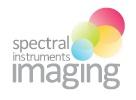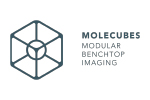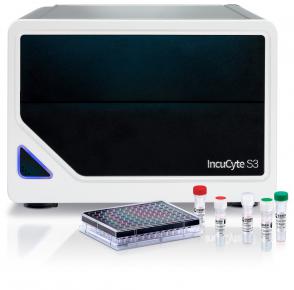Tumor spheroids exhibit more relevant morphology and increased cell survival compared to 2D cultures and have a hypoxic core. Current methods for assessing the growth and shrinkage of tumor spheroids are limited by one or more of the following: (1) assay workflows are time-consuming, expensive or laborious, (2) a requirement to label the cells (e.g. a fluorescent probe) which may perturb the biology and may not be amenable to primary tissue, (3) single time-point readouts that do not report the full timecourse, (4) indirect readouts (e.g. ATP) that may overlook valuable morphological insight and/or mis-report cell growth.
In this application note we describe methods and validation data for miniaturized (96/384-well) live-cell tumor spheroid assays that are based on non-invasive bright-field image analysis performed with the IncuCyte S3 Spheroid software module. Tumor spheroids are formed in ultra-low attachment (ULA) plates and monitored for size and morphology for up to 2 weeks. These assays are flexible, simple to run and provide automated and direct measures of tumor size in real-time.
Read more









